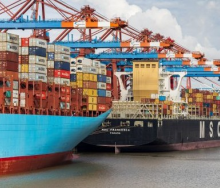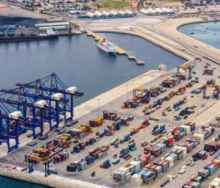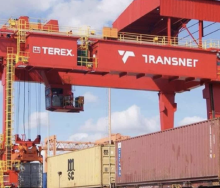Some logistics firms will have no option but to close their doors, while others who survive will pass on the spiralling cost of diesel to consumers, who will pay more for goods in the coming months, the Road Freight Association has warned.
RFA CEO, Gavin Kelly, reacting to the latest bout of diesel price hikes announced by the Central Energy Fund (CEF), said logistics firms could not afford to operate under such high costs of diesel, and cargo owners were also balking at the increases.
According to the latest CEF adjustments announced on Monday, there was good news for motorists as the price of 95 octane unleaded petrol will drop by R1.02 a litre on Wednesday and 93 octane petrol will decrease by 89c. This will bring the price of 95 petrol in Gauteng to R23.36/litre, down from a record high of R26.74 in July.
However, the price of diesel (0.05%) will rise by 10c per litre and the price of diesel (0.005%) will go up by 15 cents. The price of illuminating paraffin will drop by 61c a litre.
Kelly said there was a “direct, strong connection” between what consumers pay for goods and some services, and the rising price of energy, such as diesel.
“We cannot get away from the reality that the continuous increases in the price of diesel inevitably drives up the cost of transport and logistics – step by step. And, with roughly 85% of all goods moved through and around the country, having a road leg at some part in the journey, there will be increases to consumers as the cost to transport goods increases.”
Kelly said fuel costs had long breached the 50% mark in daily operating costs during the second quarter of the year and were now hovering at around 55%.
“That’s a cost to company. Any company or business that requires goods to be transported to manufacturing/processing/packaging/staging/distribution or retail operations – that cannot be borne by the company. That cost will, in most cases, be borne by the consumer,” Kelly said.
He said the SA Reserve Bank’s aggressive repo rate hikes and rising costs of transport, goods and services, would place consumers in a “tight financial squeeze”.
“Road freight transporters use, in the main, diesel as the energy source for their vehicles. They need to increase their pricing to cover the ever-increasing cost of diesel. There are transporters who will not be able to carry on, whose customers will now begin to flinch or refuse the cost of transport. Obviously this will impact their businesses,” Kelly said.
He said many transporters would not be able to muster the guarantees needed to buy fuel on credit, which was required because customers took up to 90 days to pay after a transport service had been provided.
“They have been carrying themselves for almost two years with the various challenges that have come in the form of protests, strikes, violence and looting, pandemics and now supply chain shortages and cost increases induced by a myriad of geo-political events,” Kelly said.
He said the immediate effect on road freight transport would be that those who have quoted or agreed rates/processes based on fuel prices relevant before the October 4 diesel price increase, could operate at a loss, depending on their client agreements.
“Some transporters – and we hear more and more of such companies these days – will simply call it a day and close down. The constantly increasing cost of fuel, which now makes up more than half of daily operating costs, has been impossible for some to manage. The choice is clear: stop the haemorrhaging of capital and close down a business that cannot even break even, never mind make a profit. The margins are already so thin,” Kelly said.
He said the latest diesel price hike would have a domino effect, leading to rising transport costs, higher prices at the tills, business closures and more unemployment.













